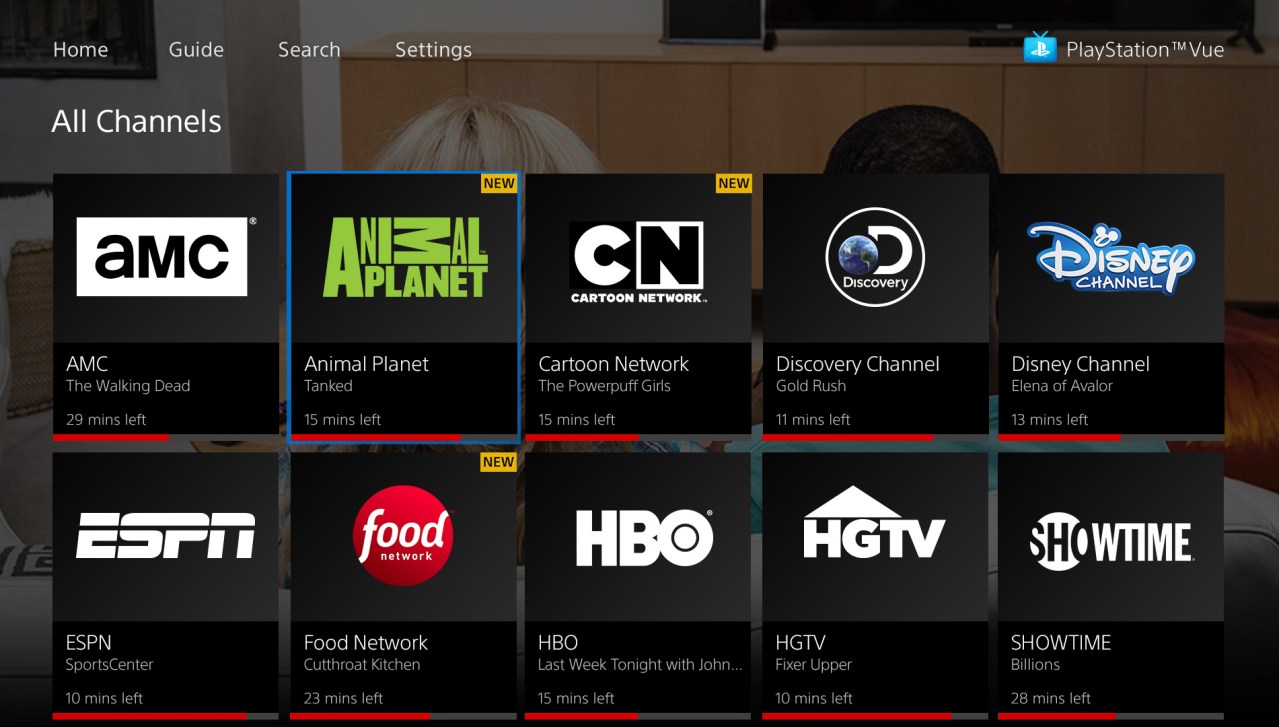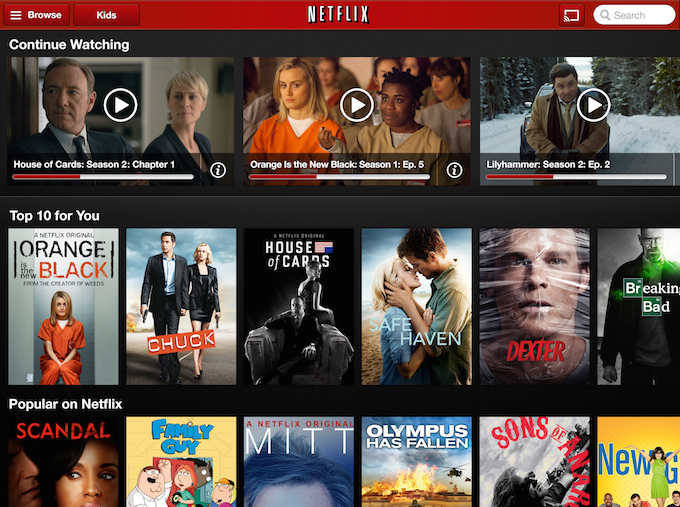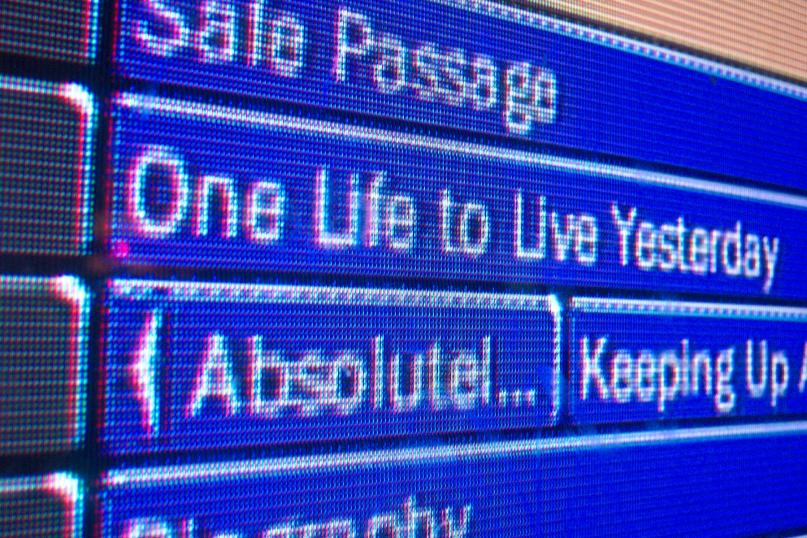techcrunch.com

Whenever a new technology arrives we typically misuse it. Rather than rethinking what’s possible and transforming industries, we consistently use it to embellish what we’ve done before.
We’ve seen this many times with new media. The first radio shows re-read newspaper headlines, the first TV shows were teleplays with cameras pointed at the readers, even websites today mostly replicate past forms with digital paper. Right now a tectonic shift from broadcast to streamed TV is upon us, and sometimes it feels like everyone is missing the point.
While everyone has talked about cord-cutting, surprisingly few have done it — largely because the packages on offer were substandard; the pricing didn’t work out; and content was limited. From Playstation Vue and Slingbox to the announcement of DirecTV Now (and shortly Hulu’s new TV service) we’re seeing a new tranche of offerings that should change how we view TV forever.
Yet a spin on these new services quickly reveals a gap in knowledge and how, so far, many companies have failed to understand how people’s behaviors and expectations have changed. This means a huge missed opportunity. The move from broadcast to streaming is of no interest, people don’t care how things get to them. They don’t care about the screen it’s on, they just care how they experience them.
More often than not we don’t go to content, it comes to us — suggested by friends or algorithms, in feeds or auto-playing next. In this context, two foundational elements of TV choice architecture are wildly irrelevant for the future but are still used as organizational principles for billion dollar decisions.

Beyond Channels to Search
Contemporary behavior is not to consume news directly from a publisher — virtually nobody goes to Buzzfeed.com and newspapers’ homepage traffic continues its precipitous decline (even most people reading this came to it from it somewhere else). How many of us found ourselves reading Teen Vogue somehow this week? Our relationship is no longer with a publisher, it’s with the article and aggregator. Similarly, in music we don’t browse what we love by their record label, we love bands or songs. We use apps that pull up all music and we navigate by genre, band or what’s suggested to us by an algorithm.
In every case, the old notion of a publisher curator has died. We think we don’t need physical newspaper editors whose role it is to gather a mixture of news and orchestrate a paper of varied content. We don’t need A&R people to decide what we like, bundle it into albums or event pay for it, content creation is now vastly more accessible, what succeeds is vastly more democratic, the barriers to entry somewhat lower, hence the abundance of stuff we have.
The same is true for TV, with a few notable exceptions we don’t watch channels we watch shows. We don’t rely on AMC to get us through the night, we watch Breaking Bad, wherever it may be. The role of TV channels is entirely irrelevant for curation, only relevant for the funding of shows we love. To take the entirely anachronistic device of the TV channel, and replicate it as an app, is stupid in the extreme. It was a solution to problems of a more primitive age.
Who wants to watch TV by selecting Apple TV, being paralyzed by 50 TV channel apps, then opening the CBS app, before selecting the show. It would be as silly as listening to Bastille by selecting the Virgin record label app from a screen of 50 other music apps.

Time for navigation is an anachronistic device.
The entire point of broadcast television was that a nation was beamed the same shows at the same time. All TV was live. People genuinely had water cooler conversations as a national culture was shaped by synchronous moments. Entire schedules were programmed this way. A station controller would assume Sunday night for nature documentaries, Friday night for raucous comedy.
For most of our memory “time shifting” TV meant a tape recording, or watching a DVD, It was the edge use case, our primary consumption was live. Netflix and “Video on demand” heralded a whole new era where content was freed from a moment in time. We’ve never quite understood how big this is and now this “time shifting” for connected households is the predominant form of TV
Yet the centerpoint of TV remains the electronic programming guide and it’s never changed. It shows irrelevant channels vertically and on a now irrelevant timescale.
Outside of news, sports or one-off events like the Oscars, it seems beyond imagination to a contemporary, savvy viewer today that time has anything to do with what they will watch. The idea that someone they’ve never met in a TV company would dare even suggest content for them is laughable.
The new world of TV is unbundled from time, removed from pipe and device agnostic. Our viewing habits have become more extreme, vacillating between the ultra-short, 20-second clip of a bee pulling nails from a wall, or the snatched 15 seconds of mannequin challenge, smashed uncomfortably against the 12-hour binge of Narcos or Black Mirror.
A New Way To Watch TV.
We’re in the mid-digital age, but we live with the legacy of analog systems, technology and thinking that’s only embellished by the technologies of our new era. I’ve 5 remote controls to watch my TV, I now need to consider the input device before the show. My Chromescast is seemingly only controlled by my phone. We’ve global rights issues with most content, we’ve 4K codecs that don’t work on Vizio TV’s, we’ve apps missing from app stores. It’s agonizingly complex.
As TV slowly recognizes the internet we should adopt new thinking and architecture. I want my primary screen to be a search bar. A search bar that pulls in content from every provider that I subscribe to (or that is free). I want it to prioritize ad-free content over ad funded. 4K content over SD.
I want a Live TV button In this sub-menu, I want shows my friends like to appear easily. I want shows that are trending Live or that my Facebook friends are viewing at that time to be shown.
I want “Spotify Radio” for TV, I want to select a show and get suggested ones like that appear next. I want all content to be linked, I want to select a TV star and see all they’ve appeared it. I want to click on a writer and find out more about them. I want my remote to be my phone and control center for all content. I want shows I can interact with meaningfully on it.
TV is about to go under the most radical transformation imaginable. Lines are going to blur. What is stored locally and what in the cloud? When does TV become Video? What should usage rights be for nations and devices? Do we need a set top box anymore?
When the current chaos ends a wonderful new landscape can emerge. A more simple way to watch the stuff we like; fewer, better, more-targeted, shorter TV ads served to individuals. Greater access to the things we love from around the world. The future is amazing, but we need to smash things up to get there and stop the lazy thinking of the past.
No comments:
Post a Comment